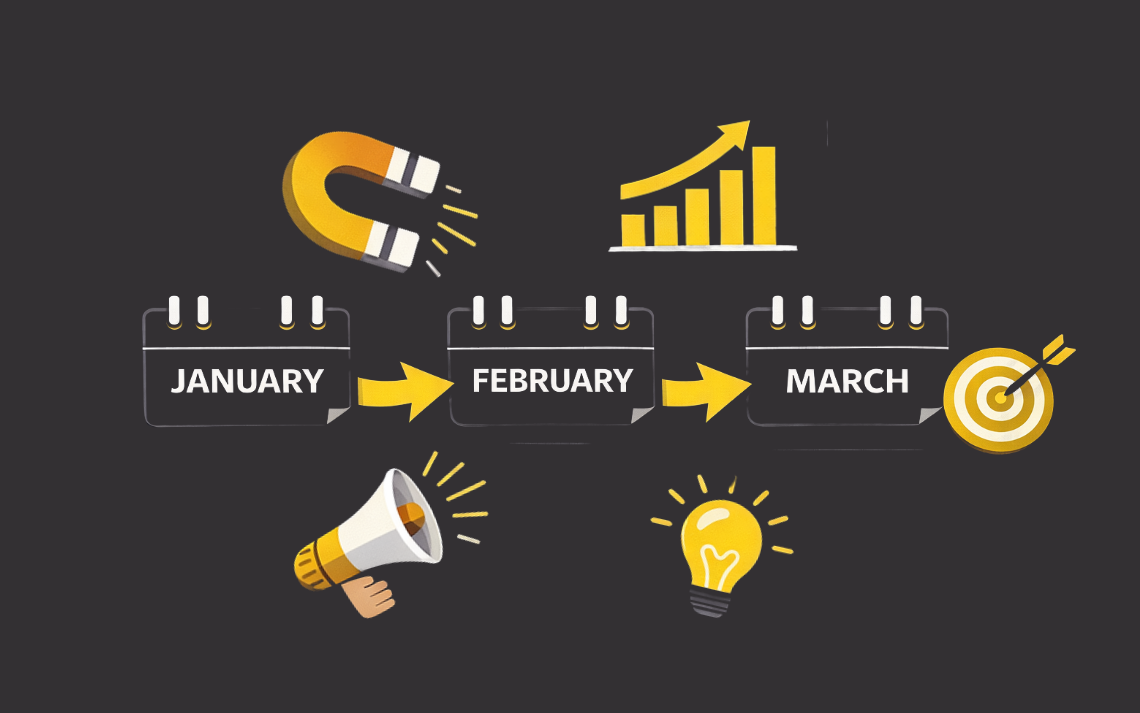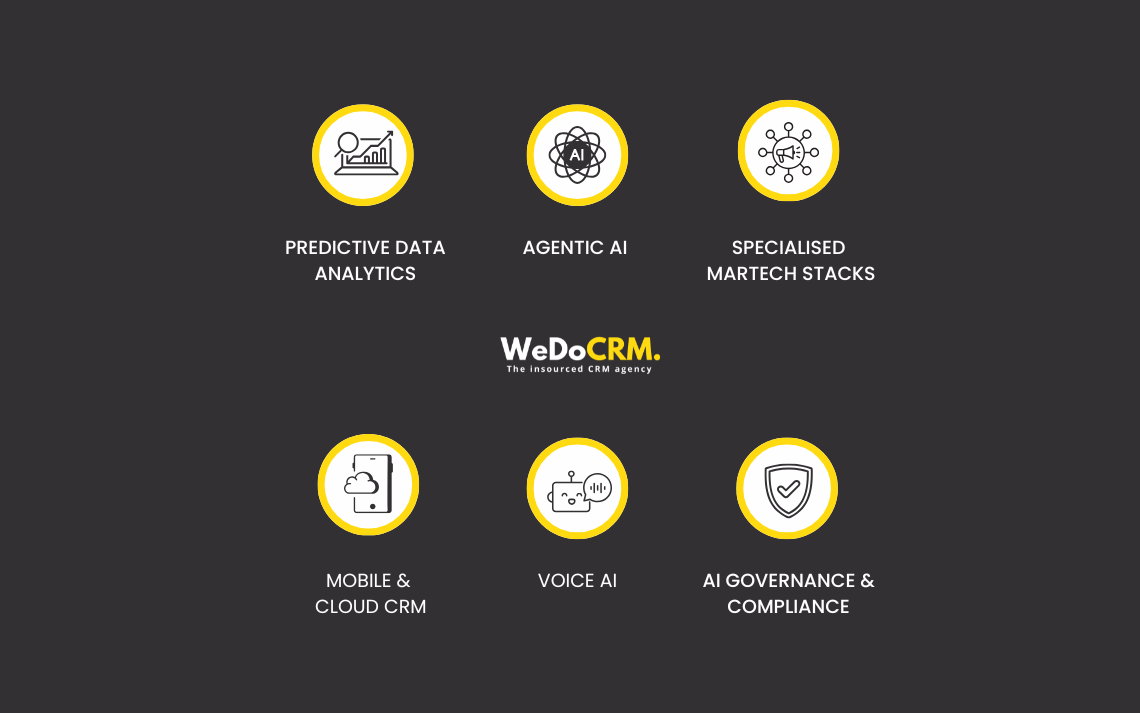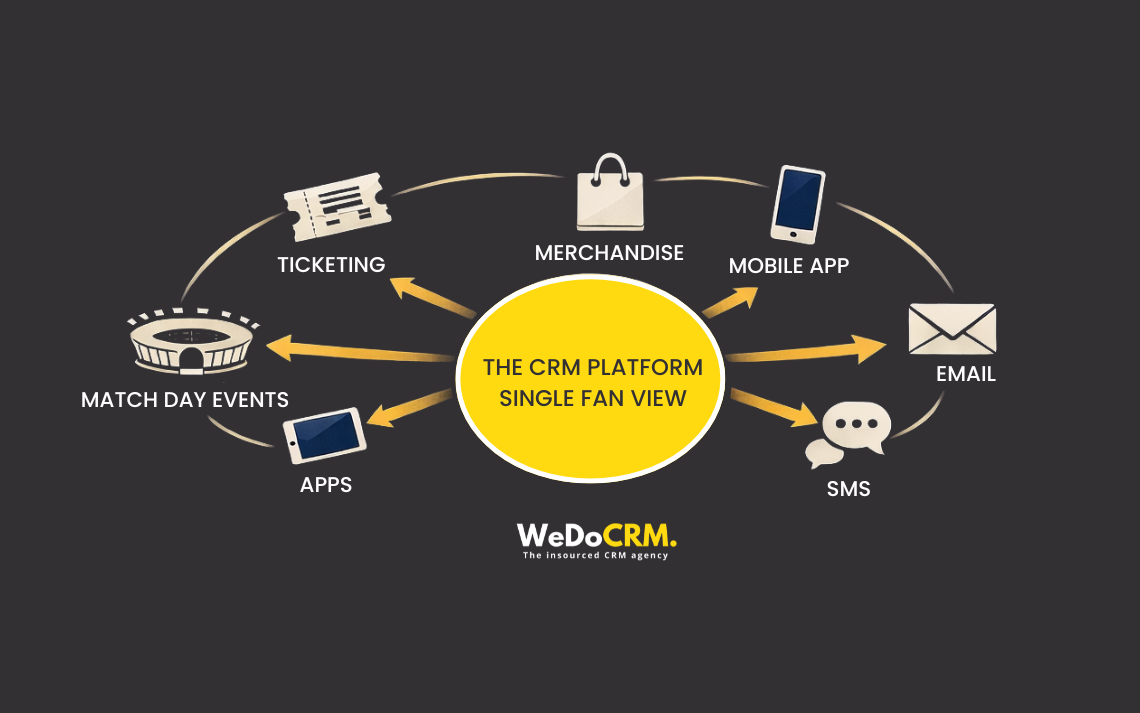So, you’ve decided to implement a CRM system, first of all, a big pat on the back for you. This is an A+ business decision, and we’re not just saying that because we’re CRM geeks (though we totally are). It’s not always an easy process though and it can admittedly prove tough, like trying to set up IKEA furniture without instructions.
Now you might be wondering, can implementing a CRM really go wrong? Oh yes – it can go very wrong. We’ve been there, done that and got the t-shirt (several t-shirts actually) by rectifying issues for some of our clients. But don’t worry, we’re here to help you avoid these common pitfalls, no stress required.
Surprising but true: almost 50% of CRM implementations fail within just 2 to 3 years. Yep, you read that right. Despite all the hype and promises, many CRMs end up underused or abandoned (it happens!).
So, why do these CRM dreams fall flat? If you are running around like a headless chicken wondering where to even begin with implementing a CRM, we’ve already put together an article on how to do it successfully. You can read it here: 7 Steps for a Successful CRM Implementation.
Let’s talk about the common mistakes to avoid. It’s easy to get wrong if you’re not careful, but hopefully, our tips will make all the difference in how your new system is adopted and, more importantly, how it works for you.
We promise this won’t be like the “This is fine” meme (you know, the one with the dog surrounded by flames)
1. No clear vision or implementation plan
Before making any big changes to your business, let us get one thing straight: you’ll need to have a clear vision of what you want to achieve. Understand your business needs and how a CRM can solve them. Too often we see businesses dive into “transformation mode” investing in a fancy new CRM only to end up with a more expensive version of exactly what they had before. The same old processes just with a shinier and often pricer tool – déjà vu!
This is probably the step we would recommend nailing before making any decisions. Implementing a CRM isn’t an easy road – take too long and your team will lose interest and motivation, do it too quickly and you could overwhelm everyone and errors can start to crack.
Avoid burnout and overcome this by planning your rollout in stages. It’s a smart way that allows your team to adapt without feeling overwhelmed. Start with a pilot, and gradually introduce essential functions before moving on to advanced features. This leads us to….
2. Forgetting to involve key people
Remember, a CRM isn’t just for you, it’s for everyone on the team who’ll rely on it daily. Avoid that dreaded “I miss the old system” and “Ugh, why did we switch?” feedback by bringing in your key people from sales, marketing and customer support.
By making them part of the decision-making process, you’re not only gathering valuable insights but also giving your team a stake in choosing the system they’ll use. When people feel they’ve had a hand in shaping the CRM, they’re much more likely to actually like using it, rather than viewing it as just another tool forced upon them. And trust me, you’ll avoid the brick walls that pop up when people are stuck with something that doesn’t meet their needs.
So save yourself the eye rolls and side-eye glances, and let your team help design the system they’ll use every day. It’s a small investment in collaboration that’ll pay off big in engagement, productivity, and maybe even a little office harmony.
You may find not everyone will love your new system and that’s okay, they will learn and my next point tells you how!
3. Insufficient User Training
Even the fanciest, most advanced CRM with all the bells and whistles can fall flat if your team doesn’t know how to use it. Despite the benefits, your team may still be hesitant to embrace change. Don’t make the mistake of assuming users will learn as they go, or magically figure it out on their own. You’ll be left with users sitting there in a confused rage, no one using it and a CRM that is just an oversized paperweight.
Don’t skip the training! Invest in tailored training sessions for each department, so everyone knows exactly how the CRM helps them race through their tasks. Make it engaging, relevant, and, dare we say, fun. It makes all the difference.
4. Not considering the platform capabilities
Selecting a CRM that doesn’t meet your future needs is a trap that can lead to more headaches down the road, making you feel like you’re stuck on Groundhog Day. It’s all too common for businesses to choose a system that seems perfect for their current situation, only to discover it’s not equipped to handle growth. After all, the whole point of investing in a CRM is to scale and evolve, isn’t it? When the system can’t keep up, you’re left with the costly and time-consuming process of switching CRMs, re-exporting data, retraining teams, and, worst of all, risking the loss of valuable information during the transition. (facepalm)
Take a moment to think ahead, not just about where you are now, but where your business is going. A little foresight and planning upfront can save you from the nightmare of re-migrating your data, grappling with a new system, and crying into your morning coffee.
5. Attempting to implement everything at once
We have seen where businesses have tried to launch a fully loaded CRM from day one, hoping to hit the ground running only to have a complete system overload! Attempting to implement every feature can lead to so many challenges. Spoiler alert: It usually ends in chaos. You’ll overwhelm your team, miss important steps, and probably burn out long before you see the benefits.
Instead of trying to tackle everything in a single phase, prioritise the essential features that align with your current goals and go from there. Once those are fully integrated and your team is comfortable, then – and only then – expand to more advanced features. Rome wasn’t built in a day, and neither should your CRM.
6. Lack of regular system reviews
So you’ve launched your CRM and you’re feeling like the jobs are done, well, it’s just the beginning I’m afraid! Just as your business evolves, so should your CRM.
What’s driving productivity today may not be as effective tomorrow, and will become outdated as your business – and customer needs – change. If you’re not regularly reviewing and updating the system, you might find yourself stuck with outdated processes that are more of a hindrance than a help.
CRM implementation isn’t just a one-off project. It’s a journey.
So, there you have it – the most common CRM implementation mistakes and how to avoid them. By planning, involving key people, ensuring adequate training, choosing the right platform, and regularly reviewing the system, you can dodge the major pitfalls that many businesses face when implementing a CRM.
If you’re still feeling a bit uncertain or need more guidance on implementing a CRM that’s the right fit for your business, don’t worry, we’re here to help! Whether you’re searching for the perfect platform or need assistance with the implementation process, our “How to Choose a CRM” guide might assist.
Or, if you’d prefer to speak with us directly, feel free to reach out via email at sales@wedocrm.co. We’d be happy to discuss your needs and help you find a solution that works for you. Looking forward to hearing from you.






